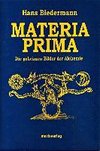
-
 Anglický jazyk
Anglický jazyk
ACID ETCHING IN ORTHODONTICS- A LITERATURE REVIEW
Autor: Ruchita Dandagval
Orthodontic treatment with fixed attachments had been performed by soldering brackets onto bands. Full-mouth banding techniques had some disadvantages, including increased chair-time, diastema resulting from the removal of bands at the end of the treatment,... Viac o knihe
Na objednávku
56.43 €
bežná cena: 62.70 €
O knihe
Orthodontic treatment with fixed attachments had been performed by soldering brackets onto bands. Full-mouth banding techniques had some disadvantages, including increased chair-time, diastema resulting from the removal of bands at the end of the treatment, unaesthetic appearances and soft tissue irritation. In 1955, Buonocore applied 85% phosphoric acid to enamel and became a pioneer in science by providing a method for bonding acrylic structures by etching on enamel. The effect of various acid pretreatment results in hard dental tissues being characterized by numerous microscopic porosities, which allow the resin to readily wet the surface and penetrate into these micro porosities. Once the resin penetrates these micro porosities it can be polymerized to form a mechanical bong to the hard tissue. Acid etching is a technique that involves the use of an acid solution to create microscopic pits and fissures on the surface of the tooth enamel and thus create retentive patterns for the infiltration and retention of resinous materials. Most of the manufacturers of adhesive system have recommended 15 seconds because it saves time without compromising the adhesive performance.
- Vydavateľstvo: LAP LAMBERT Academic Publishing
- Rok vydania: 2023
- Formát: Paperback
- Rozmer: 220 x 150 mm
- Jazyk: Anglický jazyk
- ISBN: 9786206182948







 Nemecký jazyk
Nemecký jazyk 




